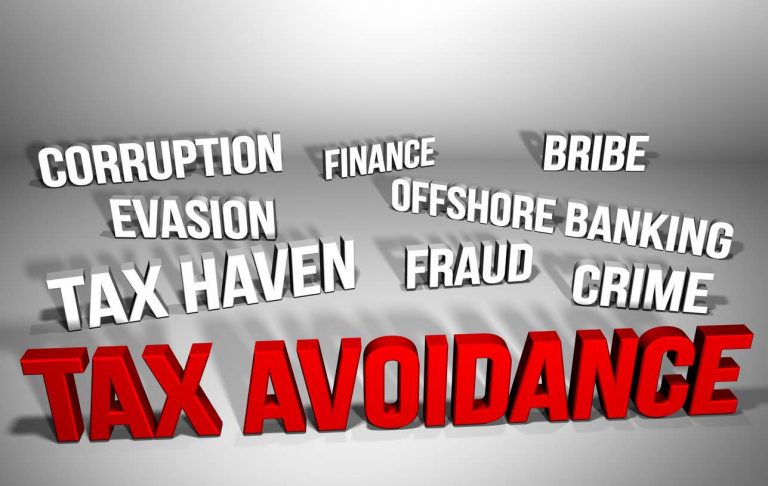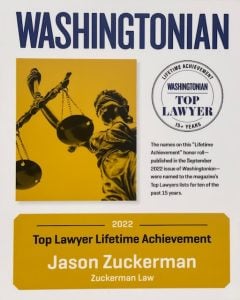
Tax Fraud Whistleblower Protection Lawyer's Guide to Tax Fraud Whistleblower Protection Law
Are whistleblowers protected against retaliation for disclosing tax fraud?

The purpose of the TFA IRS whistleblower protection law is to encourage whistleblowers with high-value inside information about tax noncompliance to come forward.
If you have suffered retaliation for reporting tax fraud or a violation of any IRS regulation, contact our experienced tax fraud whistleblower protection lawyers at 202.262.8959 for a free confidential consultation.
See our article in Accounting Today: Whistleblower protections for accountants and tax professionals bolstered by new law.






Why Hire Whistleblower Law Firm Zuckerman Law to Litigate your Taxpayers First Act Whistleblower Retaliation Case
Our experienced and effective whistleblower retaliation lawyers are committed to seeking the maximum damages for whistleblowers and zealously prosecuting whistleblower retaliation claims so that all workers can speak up without fear of reprisal.

- Matt Stock is a Certified Public Accountant, Certified Fraud Examiner and former KPMG external auditor. As an auditor, Stock developed expertise in financial statement analysis and internal controls testing and fraud recognition. He uses his auditing experience to help IRS, CFTC and SEC whistleblowers investigate and disclose complex financial frauds to the government and develop a roadmap for the SEC to take an enforcement action. Matt has been interviewed on CNBC, quoted extensively about whistleblower rewards in the media, and is the lead author of SEC Whistleblower Program: Tips from SEC Whistleblower Attorneys to Maximize an SEC Whistleblower Award.
- Dallas Hammer has extensive experience representing whistleblowers in retaliation and rewards claims and has written extensively about cybersecurity whistleblowing. He was selected by his peers to be included in The Best Lawyers in America® in the category of employment law in 2021 and 2022.
Described by the National Law Journal as a “leading whistleblower attorney,” founding Principal Jason Zuckerman has established precedent under a wide range of whistleblower protection laws and obtained substantial compensation for his clients and recoveries for the government in whistleblower rewards and whistleblower retaliation cases. He served on the Department of Labor's Whistleblower Protection Advisory Committee, which makes recommendations to the Secretary of Labor to improve OSHA’s administration of federal whistleblower protection laws. Zuckerman also served as Senior Legal Advisor to the Special Counsel at the U.S. Office of Special Counsel, the federal agency charged with protecting whistleblowers in the federal government. At OSC, he oversaw investigations of whistleblower claims and obtained corrective action or relief for whistleblowers.
- Zuckerman was recognized by Washingtonian magazine as a “Top Whistleblower Lawyer” (2020, 2018, 2017, 2015, 2009, and 2007), selected by his peers to be included in The Best Lawyers in America® in the category of employment law (2011-2021) and in SuperLawyers in the category of labor and employment law (2012 and 2015-2021), is rated 10 out of 10 by Avvo, based largely on client reviews, and is rated AV Preeminent® by Martindale-Hubbell based on peer reviews
- We have published extensively on whistleblower rights and protections, and speak nationwide at seminars and continuing legal education conferences. We blog about new developments under whistleblower retaliation and rewards laws at the Whistleblower Protection Law and SEC Awards Blog, and in 2019, the National Law Review awarded Zuckerman its “Go-To Thought Leadership Award” for his analysis of developments in whistleblower law.
- Our attorneys have been quoted by and published articles in leading business, accounting, and legal periodicals, including The Wall Street Journal, Forbes, CNBC, MarketWatch, Vox, Accounting Today, Going Concern, Law360 – Expert Analysis, Investopedia, The National Law Review, inSecurities, Government Accountability Project, S&P Global Market Intelligence, Risk & Compliance Magazine, The D&O Diary, The Compliance and Ethics Blog, Compliance Week and other printed and electronic media.
Taxpayer First Act Whistleblower Protection Law
26 U.S.C. § 7623(d)
CIVIL ACTION TO PROTECT AGAINST RETALIATION CASES
(1) ANTI-RETALIATION WHISTLEBLOWER PROTECTION FOR EMPLOYEES. No employer, or any officer, employee, contractor, subcontractor, or agent of such employer, may discharge, demote, suspend, threaten, harass, or in any other manner discriminate against an employee in the terms and conditions of employment (including through an act in the ordinary course of such employee's duties) in reprisal for any lawful act done by the employee—
(A) to provide information, cause information to be provided, or otherwise assist in an investigation regarding underpayment of tax or any conduct which the employee reasonably believes constitutes a violation of the internal revenue laws or any provision of Federal law relating to tax fraud, when the information or assistance is provided to the Internal Revenue Service, the Secretary of the Treasury, the Treasury Inspector General for Tax Administration, the Comptroller General of the United States, the Department of Justice, the United States Congress, a person with supervisory authority over the employee, or any other person working for the employer who has the authority to investigate, discover, or terminate misconduct, or
(B) to testify, participate in, or otherwise assist in any administrative or judicial action taken by the Internal Revenue Service relating to an alleged underpayment of tax or any violation of the internal revenue laws or any provision of Federal law relating to tax fraud.
(2) ENFORCEMENT ACTION.
(A) IN GENERAL. A person who alleges discharge or other reprisal by any person in violation of paragraph (1) may seek relief under paragraph (3) by
(i) filing a complaint with the Secretary of Labor, or
(ii) if the Secretary of Labor has not issued a final decision within 180 days of the filing of the complaint and there is no showing that such delay is due to the bad faith of the claimant, bringing an action at law or equity for de novo review in the appropriate district court of the United States, which shall have jurisdiction over such an action without regard to the amount in controversy.
(B) PROCEDURE. --
(i) IN GENERAL. An action under subparagraph (A)(i) shall be governed under the rules and procedures set forth in section 42121(b) of title 49, United States Code.
(ii) EXCEPTION. Notification made under section 42121(b)(1) of title 49, United States Code, shall be made to the person named in the complaint and to the employer.
(iii) BURDENS OF PROOF. An action brought under subparagraph (A)(ii) shall be governed by the legal burdens of proof set forth in section 42121(b) of title 49, United States Code, except that in applying such section—
(I) 'behavior described in paragraph (1)' shall be substituted for 'behavior described in paragraphs (1) through (4) of subsection (a)' each place it appears in paragraph (2)(B) thereof, and ''(II) 'a violation of paragraph (1)' shall be substituted for 'a violation of subsection (a)' each place it appears.
(iv) STATUTE OF LIMITATIONS. A complaint under subparagraph (A)(i) hall be filed not later than 180 days after the date on which the violation occurs.
(v) JURY TRIAL. A party to an action brought under subparagraph (A)(ii) shall be entitled to trial by jury.
(3) REMEDIES.—
(A) IN GENERAL. An employee prevailing in any action under paragraph (2)(A) shall be entitled to all relief necessary to make the employee whole.
(B)COMPENSATORY DAMAGES.—Relief for any action under subparagraph (A) shall include—
(i) reinstatement with the same seniority status that the employee would have had, but for the reprisal,
(ii) the sum of 200 percent of the amount of back pay and 100 percent of all lost benefits, with interest, and
(iii) compensation for any special damages sustained as a result of the reprisal, including litigation costs, expert witness fees, and reasonable attorney fees.
(4) RIGHTS RETAINED BY EMPLOYEE. Nothing in this section shall be deemed to diminish the rights, privileges, or remedies of any employee under any Federal or State law, or under any collective bargaining agreement.
(5) NONENFORCEABILITY OF CERTAIN PROVISIONS WAIVING RIGHTS AND REMEDIES OR REQUIRING ARBITRATION OF DISPUTES.
(A) WAIVER OF RIGHTS AND REMEDIES. The rights and remedies provided for in this subsection may not be waived by any agreement, policy form, or condition of employment, including by a predispute arbitration agreement.
(B) PREDISPUTE ARBITRATION AGREEMENTS. No predispute arbitration agreement shall be valid or enforceable, if the agreement requires arbitration of a dispute arising under this subsection.

 Described by the National Law Journal as a “
Described by the National Law Journal as a “
